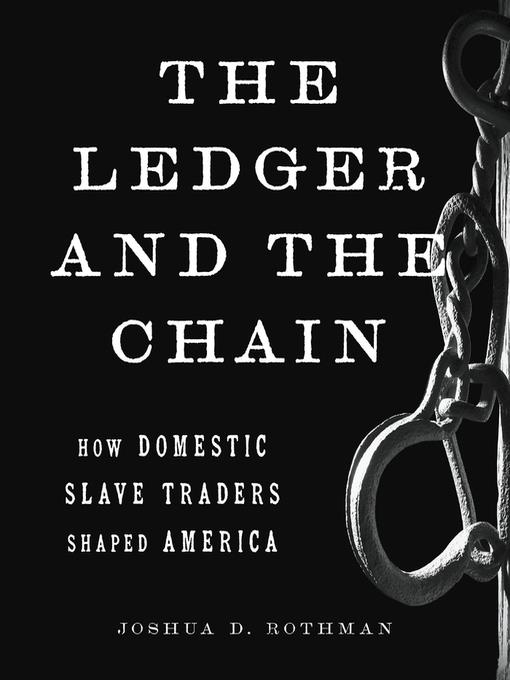
The Ledger and the Chain
How Domestic Slave Traders Shaped America
کتاب های مرتبط
- اطلاعات
- نقد و بررسی
- دیدگاه کاربران
نقد و بررسی

March 1, 2021
Between 1800 and 1860, slavers transported roughly one million Black people within the American South and between states. Award-winning author Rothman (history, Univ. of Alabama; Flush Times and Fever Dreams) brings to life the enormity of the lucrative interstate and intrastate merchandising of brutalized Black bodies as instruments of capital and exchange in an American commerce bottomed on instruments of torture like the shackle and whip. He reconstructs the lives of Isaac Franklin (1789-1846), John Armfield (1797-1871), and Rice Ballard (1800-60), principals of the largest U.S. slave trading business: Alexandria, VA-based Franklin & Armfield. This wide-ranging and meticulously documented study interweaves biography, family dynamics, business contours and networks, and local and national developments to show how slavery and capitalism were always intertwined. Rothman carefully details how the success of Franklin & Armfield was aided by innovations in technology, infrastructure, information, and finance. To conclude, he underscores how these actions facilitated slave trafficking, leading to the permanent separation of families. VERDICT Explaining how trafficking in slaves advanced private and public priorities as it produced great wealth and promoted national growth, Rothman displays the ever-present and impoverishing cost to the enslaved. A must-read account that sheds light on the interdependence of slavery and capitalism in the United States.--Thomas J. Davis, Arizona State Univ., Tempe
Copyright 2021 Library Journal, LLC Used with permission.

March 1, 2021
A chilling account of the metastatic growth of America's internal slave trade in the early 1800s. Rothman, the chair of the history department at the University of Alabama and author of two previous books on slavery in the U.S., employs his wide breadth of knowledge about the era to vividly depict the human and economic impacts of the domestic slave trade as it burgeoned in the early 19th century. Digging deeply into the horrific details of the hugely profitable slave-trafficking business of Isaac Franklin, John Armfield, and Rice Ballard in Natchez, Mississippi, and Alexandria, Virginia, where they based their operations from the mid-1820s, the author clearly shows the mechanics behind the exponential growth of slavery in the South as it rose to meet the demands of a growing nation, financially, politically, geographically, and demographically. "Their America incentivized entrepreneurialism, financial risk, and racial slavery, and no one made more of the junction among those things than they did," writes Rothman in this meticulously documented history. "They became some of the richest men in the country as a result." Expanding from the successful model of slave trader Austin Woolfolk, who worked out of Baltimore, Franklin, Armfield, and Ballard took out ads, bargained in taverns, and bought enslaved people and took them to New Orleans, Charleston, and other cities in order to sell them for a profit. During the presidency of Andrew Jackson, the clearing of Native peoples from their lands allowed for a massive increase in the production of cotton and sugar as well as the proliferation of banks and technological advances like the cotton gin--all of which required a seemingly "bottomless" supply of free labor. As they grew their businesses, these men "helped foster something resembling a national market in commoditized human beings that paralleled the development of national markets in an array of other goods." An excellent work of vast research that hauntingly delineates the "intimate daily savageries of the slave trade."
COPYRIGHT(2021) Kirkus Reviews, ALL RIGHTS RESERVED.

























دیدگاه کاربران